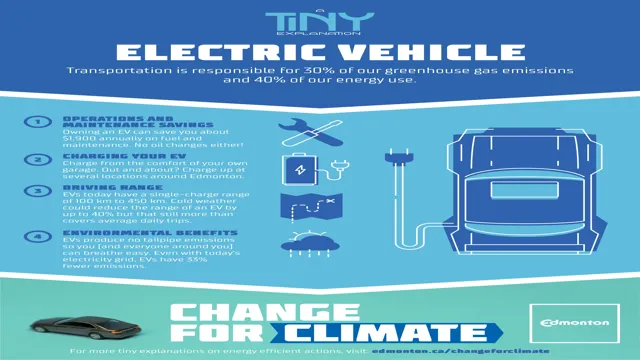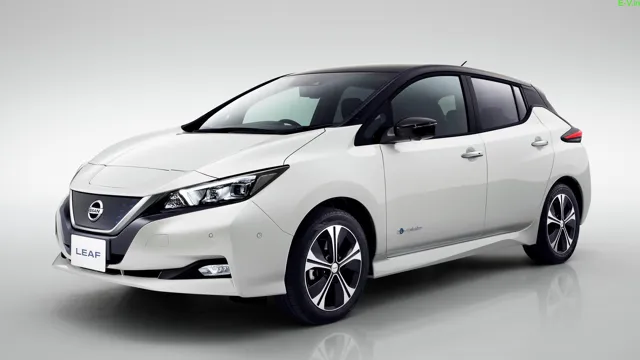Electric Cars: The Game-Changer for Companies – Why Businesses Are Benefiting from Switching to Electric Cars
Have you ever considered the benefits that electric cars can bring to companies? In recent years, there has been an increase in the number of businesses that have made the switch to electric vehicles. Not only do they reduce carbon emissions and support environmental sustainability, but they also bring significant financial advantages and operational efficiencies. Companies across various sectors are realizing the potential of electric cars, from reduced fuel costs to improved brand reputation.
In this blog, we will explore the ways in which companies can benefit from incorporating electric cars into their fleet and how it can lead to a more prosperous future.
Cost Savings
Electric cars are becoming increasingly popular among companies due to their potential for cost savings. One of the ways companies benefit from electric cars is through reduced fuel costs. Electric cars are powered by electricity, which costs significantly less than gasoline or diesel.
This makes electric cars more cost-efficient for businesses that rely heavily on transportation, as it reduces their overall fuel expenses. Furthermore, electric cars require less maintenance than traditional vehicles, which means that companies can save on repair costs and reduce downtimes. Companies can also take advantage of government incentives for purchasing electric vehicles, such as tax credits and subsidies, which help to lower the purchasing costs.
These cost savings make electric cars a more attractive option for companies, particularly those that are looking for environmentally-friendly alternatives to traditional gas-powered vehicles.
Lower Fuel and Maintenance Costs
Lower fuel and maintenance costs are some of the most significant advantages of using a vehicle that runs on alternative fuel such as electric or hybrid. With the ever-increasing costs of fuel, this is an essential aspect to consider when making a decision about purchasing a vehicle. The good news is that alternative fuel sources are not only environmentally friendly, but they have low fuel consumption rates, which translates to lower fuel costs.
Additionally, electric and hybrid vehicles have fewer moving parts, which results in lower maintenance costs and fewer trips to the mechanic. This means that vehicle owners can save a significant amount of money on fuel and maintenance costs over the lifespan of the vehicle. The cost-saving benefits of alternative fuel vehicles make them an attractive option for anyone on a budget, and it’s also a terrific way to help reduce your impact on the environment.
By choosing an electric or hybrid vehicle, you’re not only saving money but doing your part to help protect the planet by reducing carbon emissions.

Tax Incentives and Rebates
Tax incentives and rebates are a great way for individuals and businesses to save money on their taxes while also investing in energy-efficient technologies. For example, homeowners who purchase and install solar panels on their homes can qualify for tax credits that can significantly reduce the cost of the panels. Additionally, businesses that invest in energy-efficient equipment or upgrade their buildings to be more environmentally friendly may also be eligible for tax incentives and rebates.
These incentives not only help save on taxes but also encourage the use of renewable energy and sustainable practices. It’s like catching two birds with one stone – saving money while also contributing to a cleaner and greener environment. So, if you’re considering making environmentally friendly upgrades to your home or business, be sure to check out any tax incentives and rebates that may be available to you.
Environmental Benefits
Companies benefit greatly from using electric cars as they provide significant environmental advantages. Firstly, electric vehicles emit zero emissions during operation which is a major benefit to the planet. This reduces air pollution and decreases the amount of CO2 emissions that are released into the atmosphere.
Secondly, electric cars require less maintenance and use less energy than traditional gas-powered cars, which saves companies money in the long run. They also produce less noise pollution and are therefore more environmentally friendly in urban areas. By adopting the use of electric cars, companies can demonstrate their commitment to environmental responsibility, which can improve their public image and help attract environmentally conscious customers.
Additionally, many countries offer incentives such as tax breaks and subsidies for companies that transition to electric vehicles, which can result in significant cost savings. It’s clear that companies have a lot to gain from using electric cars, from saving money on maintenance and fuel costs to actively contributing to a more sustainable future.
Reduced Carbon Footprint
Reduced Carbon Footprint Reducing our carbon footprint is crucial to preserving the environment and combating climate change. By making small adjustments in our daily lives, we can significantly reduce the amount of greenhouse gases emitted into the atmosphere. But aside from personal benefits, environmental benefits abound with a reduced carbon footprint.
For one, it helps to reduce air pollution levels, which in turn can decrease the prevalence of health issues such as lung diseases. It also helps to protect our planet’s wildlife and ecosystems, which are crucial to maintaining a healthy and balanced environment. By reducing our carbon footprint, we can all play a part in creating a better tomorrow for ourselves and future generations.
So, let’s strive to make a difference, one small step at a time!
Compliance with Emissions Standards
Compliance with emissions standards provides a plethora of environmental benefits that make it crucial for businesses to remain compliant. One of the most significant benefits is the reduction of harmful air pollutants, which improves air quality and reduces respiratory illnesses. Emissions that contribute to climate change, such as carbon dioxide, are also reduced, which helps to mitigate the current rate of global warming.
Aside from the effects on the air, compliance with emissions standards also helps to maintain the quality of water and soil. Businesses that abide by emissions standards reduce the amount of harmful chemicals that end up in bodies of water or in the soil, which improves the overall health of ecosystems. By complying with emissions standards, businesses can have a positive impact on the environment and effectively contribute to a more sustainable future.
Improved Corporate Social Responsibility
Environmental Benefits Many companies have started to take their corporate social responsibility seriously, especially when it comes to environmental benefits. Cutting down on greenhouse gas emissions, minimizing waste and consumption of resources has become a top priority for businesses worldwide. With technological advancements and innovative techniques such as the use of renewable energy sources, water-efficient systems, and biodegradable materials, businesses can now enact environmentally friendly policies and measures to benefit the planet.
By reducing carbon emissions and waste generated during production and operations, businesses can make a significant impact on the environment. Switching to electric vehicles or using public transportation, reducing paper usage and printing, and participating in recycling and compost programs are just a few ways businesses can make a difference. By taking these measures, companies not only contribute to a better environment but also strengthen their brand image by showcasing their commitment to environmental sustainability.
As individuals, we can also play our part in supporting environmentally responsible companies by choosing products and services from companies that prioritize environmental benefits.
Increased Efficiency
One of the most significant benefits of companies switching to electric cars is the increased efficiency. Electric vehicles are more efficient because they can capture and use up to 60% of the energy produced from their batteries, compared to the 20% efficiency of traditional gasoline engines. This means that electric cars can travel more miles on a single charge, reducing the need for frequent refueling and maintenance.
Companies that have switched to electric cars have reported a significant reduction in maintenance costs and downtime, resulting in increased productivity and profits. Besides, electric cars have fewer moving parts than internal combustion engines, reducing the probability of breakdowns. Switching to electric cars also benefits the environment by reducing emissions and promoting clean energy sources.
Companies that invest in electric car fleets benefit from reduced costs and increased efficiency, ultimately leading to increased profits.
Reduced Downtime for Refueling
Reduced Downtime for Refueling When it comes to managing fleets of vehicles, minimizing downtime is crucial. Every minute a vehicle spends off the road is time and money lost. This is especially true when it comes to refueling.
Traditional fueling methods can take a while, and vehicles can be out of commission for longer than necessary. This is where new technologies like alternative fuel sources and smart fueling systems come into play. By utilizing options like hydrogen fuel cells or electric charging stations, refueling can be completed faster, reducing downtime for vehicles.
Additionally, smart fueling systems can track the fuel levels in each vehicle and automatically schedule refueling when necessary, making the process even more efficient. With reduced downtime for refueling, fleets can operate more effectively and save money in the process.
Positive Impact on Employee Morale
The positive impact of increased efficiency on employee morale cannot be overstated. When employees feel that they are able to complete their tasks efficiently and effectively, their sense of accomplishment and job satisfaction increases. This, in turn, leads to a more positive work environment, reduced employee turnover, and ultimately, increased productivity.
As a manager or business owner, it’s important to recognize the importance of efficiency in improving employee morale. There are several ways to approach this, such as providing employees with the tools and resources they need to do their job effectively, regularly offering training and development opportunities, and creating a positive and supportive company culture. By investing in your employees and promoting efficiency, you’ll not only improve morale, but also the overall success of your business.
Future-proofing Business Operations
Electric cars have gained much popularity in recent years, and companies are starting to recognize the benefits of incorporating them into their business operations. Not only are they environmentally friendly, but electric cars also offer significant cost savings in terms of fuel and maintenance expenses. In addition, many governments are offering incentives for businesses that switch to electric cars, such as tax benefits and access to carpool lanes.
By investing in electric cars, companies can future-proof their operations by reducing their carbon footprint and staying ahead of the curve in terms of sustainability. Plus, with the increasing availability of charging stations, range anxiety is becoming less of a concern for drivers. All in all, companies benefit from electric cars by both saving money and contributing towards a greener future.
Conclusion
In conclusion, companies that embrace the trend of electric vehicles enjoy a multitude of benefits. From reducing their carbon footprint and operating costs to attracting eco-conscious customers and improving brand image, electric cars provide a smart investment for forward-thinking businesses. So, don’t be shocked when you see more electric vehicles parked in the corporate lot – it’s simply a sign that these companies are driving towards a brighter and greener future!”
FAQs
How do companies benefit from electric cars?
Companies benefit from electric cars in several ways. Firstly, electric cars are more environmentally friendly, which helps companies reduce their carbon footprint and meet environmental regulations. Secondly, they can save money on fuel costs as electricity is generally cheaper than gasoline or diesel. Finally, companies can also benefit from tax incentives and grants for using electric cars.
Are there any disadvantages to companies using electric cars?
There can be some disadvantages to companies using electric cars, such as the higher initial cost of purchasing or leasing them. Additionally, the range of electric cars may not be sufficient for some businesses that require longer distances to be covered. Finally, charging infrastructure is not as widespread as traditional gasoline stations, which can also be a disadvantage for companies.
How can companies encourage their employees to use electric cars for work?
Companies can encourage their employees to use electric cars for work by offering incentives or subsidies to make electric cars more affordable. They can also provide access to charging stations at work and offer employees the option to recharge their electric cars for free. Additionally, providing information about the environmental and financial benefits of using electric cars can also motivate employees to switch.
What impact can electric cars have on a company’s brand image?
The use of electric cars can have a positive impact on a company’s brand image, especially if the company promotes itself as environmentally conscious. Customers who are concerned about the environment may be more likely to do business with companies that use electric cars, as they see it as a sign that the company is committed to sustainability. Additionally, using electric cars can differentiate a company from its competitors, which can enhance its reputation and attract new customers.





